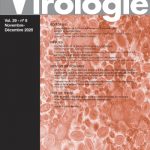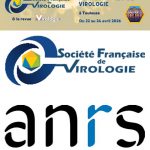![]()
![]()
![]()
Qu’est-ce que le dispositif ExposUM Doctoral Nexus ?
Les Doctoral Nexus proposés par l’Institut ExposUM sont des réseaux de 3 à 4 doctorantes et
doctorants, issus de disciplines différentes et affiliés à au minimum deux unités de recherche
différentes.
Par rapport à une thèse classique, participer à un Doctoral Nexus favorisera la capacité à
travailler en équipe et à concevoir des projets de manière transdisciplinaire tout en
approfondissant son propre champ d’expertise.
Un programme pédagogique spécifique sera proposé et les doctorant(e)s concerné(e)s auront
également l’opportunité d’organiser un séminaire au sein du réseau Nexus.
Les thèses sont financées d’emblée pour 4 années, comprenant le salaire du doctorant ou de
la doctorante ainsi qu’une enveloppe d’environnement.
Sujet de thèse
Intitulé du sujet de thèse : Studying respiratory virus infections of bronchial airway epithelium
models exposed to pollutants / Part of the COCKTAIL Nexus project
Date envisagée de démarrage de la thèse : 01/10/2024
Directeur de thèse : MURIAUX, Delphine, UMR9004 IRIM, ED CBS2, HDR (oui), fraction
d’encadrement du doctorant proposé (50%)
co-directeur/encadrant de thèse : GROS, Nathalie, UAR3725 CEMIPAI, IEHC CNRS, HDR (non), fraction d’encadrement du doctorant proposé (25%) pour les infections sur iALI/iOC en BSL3 et 25% avec Cyril FAVARD (IRHC, HDR) de l’équipe MDVA à l’IRIM
pour l’imagerie quantitative de super-résolution, taux d’encadrement total déjà engagé
actuellement (50%).
Context : the bronchial epithelium is constantly exposed to pollutants, dust and microbes (viruses
and bacteria), fragilizing the tissues and increasing its permissiveness to respiratory viruses. Our
team has already developed different virological tests to study the replication of respiratory
viruses such as SARS-CoV-2 and variant of interests, Influenza A/H1N1 and RSV on human
pulmonary cell lines and recently on iALI with partner D1 (Assou et al., 2023). In addition, we
developed state-of-the art 3D fluorescent microscopy in respiratory virus infected lung cells
(Swain et al., 2023) and now on organoids in a safe BSL3 environment at CEMIPAI (UAR 3725
CNRS/Univ. Montpellier).
Objectives : the goal of the project is to understand the impact of pollutants or dust on viral
infection on reconstituted in vitro bronchial epithelium models in different conditions. The PhD
student will study viral infections on iALI lung organoids and on the advanced « airway on a chip »
model (iOC), in close collaboration with Partners D1 (J.DeVos, IRMB) and D2 (G. Massiera, L2C),
either alone or in combination with pollutants.
We will study especially respiratory viruses (such as SARS-CoV-2 and variants, Respiratory Syncitial
Virus and Influenza A viruses) on iALI/iOC developed by partner D1 and D2. We will try to identify
any cellular factors or inflammatory responses that prevent or enhanced viral infections in the
different conditions studied by partner D1.
For that we will infect, in the BSL3 laboratory at CEMIPAI, different pulmonary iALI (from partner
D1) with different respiratory viruses in combination with or without pollutants or dust, and
comparing with and without the organ-on-chip system (from partner D2) that will mimic the
respiratory track flux.
We will follow viral replication overtime in the reconstituted tissues by different methods
(RTqPCR, alpha-LISA, immuno-fluorescent-based automated microscopy, live imaging in BSL3).
Total RNA from infected iALI will be extracted and proceed for single cell RNAseq transcriptomic
and analysis for viral genes and cellular inflammatory genes variation (by partner D1), upon
different infections conditions, including in the absence and in the presence of immune cells
(alveolar macrophages/T cells). Cytometry, cytokines measurements and immuno-fluorescent-
based 3D imaging will be performed on infected iALI (in the BSL3) for providing a cellular
landscape of the infections and the spatial cell type analysis of the infected tissue (using 3D
confocal fluorescent imaging).
Expected Results : We will monitor the infection kinetics of respiratory viruses overtime and in
the presence of different conditions of pollutants or dust (as defined with partner D1). We will
determine in these different conditions the profile of infection, gene activation or repression,
inflammation in the infected bronchial epitheliums (iALI/iOC). These results will provide a
landscape of infection in the different conditions at the single cell level and overtime. This should
ultimately lead to identify new host cell-virus factors important for virus propagation in the lung
tissue in a more physiological condition. This will also provide a platform for antiviral drug testing.
Feasibility : The project will be done at IRIM (UMR9004) and CEMIPAI (UAR3725) in excellent
conditions with synergic collaborations and interactions with IRMB for preparation of different
iALI lung organoids in different conditions, and on iOC with L2C/UM, then with IRMB for spatial
transcriptomic analysis of infected samples. iOC will be deposit on CEMIPAI BSL3 microscope for
live imaging of the exposome samples. We, at the MDVA team at IRIM, are expert in Virology and
2D/3D cell-virus fluorescence imaging on infectious systems.
Modalités de candidature
La candidature doit être composée des éléments suivants:
– Un CV
– Une lettre de motivation
– De la copie du diplôme permettant l’inscription
– Des éléments spécifiques demandés par l’école doctorale Chimie Biologie Santé DE
CBS2 n°168 (https://edcbs2.umontpellier.fr)
Si vous souhaitez postuler sur ce sujet, adressez au plus vite un mail à Delphine Muriaux, en mettant en copie john.de-vos@umontpellier.fr et exposum-aap@umontpellier.fr afin de les informer de votre intérêt.
Avant le dimanche 21 avril, 20h CET




